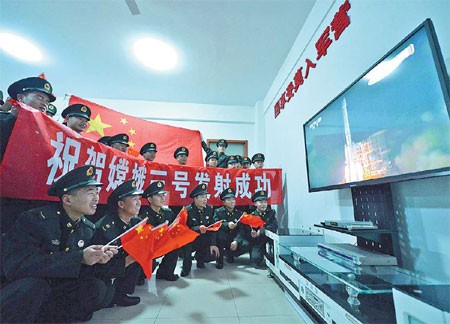China’s Chang’e-3 spacecraft landed on the moon Saturday and deposited the lunar rover Yutu on the surface, making China the third nation to have explored Earth’s moon.
The 13-day journey is an important milestone for China as it continues to modernize and advance technologically. The event was celebrated across the country and hailed as a national victory by the state media and population alike.
The rover is set to begin detection and survey missions. It is equipped with sensors and other instruments allowing it to gather information about the composition of lunar material as deep as 300 feet below the surface.
While the purpose of the mission is simple exploration, the ultimate goal of China in sending the rover is much more broad. This is just one of a series of Chang’e missions; further activities will likely include bringing back rocks and other lunar materials for analysis, as well as a possible space station. Furthermore, this mission works to develop Chinese space technology, positioning China as one global leader in spaceflight, exploration, and technological development.
The mission, seen as benign and peaceful by the Chinese government, has other nations wary. As China develops it’s capabilities, the United States has taken a step back in recent years, with crowning American achievements like the Hubble Space telescope and International Space Station headed for decommission in the not-so-distant future. Another concern is that the China National Space Administration, unlike NASA or the European Space Agency, is overseen entirely by the military, generating questions over the peaceful nature of China’s space program.
The Chang’e spacecraft is named after the Chinese goddess of the moon, and follows lunar orbiters Chang’e 1 and 2. The Yutu rover is named after her pet, a jade rabbit, who lives with her on the moon. The name for the rover was selected in an online poll to promote the mission.



























